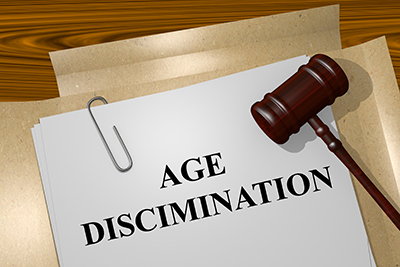The U.S. 7th Circuit Court of Appeals—which covers employers in Illinois, Indiana, and Wisconsin—recently heard a claim in which a Chicago janitor says he was passed up for a promotion due to his age. However, the employer says it was because he failed to pass the exams required for the promotion. Does the janitor have a claim? The 7th Circuit weighs in.

Facts
Romuald Tyburski, then 74 years old, applied for a promotion with the Chicago Department of Water Management. As part of the application process, he was required to pass a three-part examination (two parts written and one verbal). He passed the written parts but failed the verbal exam after receiving a score of 42% when 60% was required to pass. Therefore, he wasn’t promoted.
Two chief operating engineers conducted and scored Tyburski’s verbal exam. There were five questions, and each had a possible score of five points. The scorers multiplied the scores by four to obtain a possible total score of 100%. They used the city’s HR standard exam questions, answers, and scoring rubric to grade the exam.
Tyburski sued the city alleging failure-to-promote and hostile work environment claims under the Age Discrimination in Employment Act (ADEA). His main assertion under the failure-to-promote claim was that the city improperly scored his verbal exam since it was subjective and therefore used the failing grade as a pretext (or cover-up for illegal discrimination) to deny him the promotion. The district court dismissed the case, and he appealed.
7th Circuit’s Ruling
The 7th Circuit recited the elements an employee must prove to succeed on an ADEA claim. First, he must be 40 years of age or older, and second, “but for” his age, he would have been promoted. One method the employee may use to defeat a request to dismiss his discrimination claim is to show:
- He is a member of a protected class;
- He was meeting the employer’s legitimate expectations;
- He suffered an adverse employment action; and
- Similarly situated employees who weren’t members of his protected class were treated more favorably.
In determining whether the city’s proffered reason for not promoting Tyburski was a cover-up for bias, the 7th Circuit considered whether it improperly scored his verbal exam and used the failing grade as pretext to deny the promotion.
First, the appellate court said employers are permitted to set the necessary qualifications for a position, and courts don’t tell them what the requirements must be. Therefore, there was nothing inherently discriminatory in requiring the janitor to pass a verbal exam with specific requirements to be promoted.
Next, the 7th Circuit looked at the exam’s subjectivity. The city’s scorers used a standard rubric to evaluate candidates, which had bullet points and potential components to answer each question correctly. The appellate court acknowledged some subjectivity in the process but noted subjective criteria alone don’t suffice as evidence of pretext. Tyburski had to point to some objective evidence indicating the subjective evaluation was a mask for discrimination, but the court said he failed to do so.
Finally, the 7th Circuit noted Tyburski presented no evidence his age, rather than the quality of his answers, motivated the interviewers to fail him. Specifically, there was no evidence of pretext to explain the grading. To show pretext, he had to do more than simply allege the city’s stated reasons were inaccurate. He needed to have proof to support an inference there was an improper motivation proscribed by law.
Tyburski pointed to no evidence other than that the scorers knew his age. As a result, the 7th Circuit agreed with the trial court and ruled in the city’s favor. Tyburski v. City of Chicago, No. 18-3000 (7th Cir., July 1, 2020).
Bottom Line
The 7th Circuit’s ruling contains important reminders for employers. First, be certain to have stated qualifications for each job category and adhere to them. Courts won’t tell you what the requirements should be, but be sure they aren’t discriminatory in nature.
Second, nothing is inherently wrong with having subjective tests to decide which employees to promote. If you do so, however, be certain the scorers have a standard rubric to follow and help guide their scoring. The rubric provides some basis for why the scores turned out as they did.
Moreover, using multiple scorers and averaging their scores, as the city did here, avoids the argument one person was acting discriminatorily.
Nate Kollath is an attorney with Axley Brynelson, LLP, in Madison, Wisconsin. He can be reached at nkollath@axley.com.
